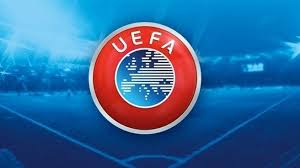By Andrew Warshaw in Astana
March 27 – UEFA formally announced the creation of its new Nations League competition to replace meaningless friendlies today, with the organisation’s president Michel Platini pledging it will become an integral part of the game in years to come.
The revenue-boosting competition starting in late 2018 will run mostly in odd-numbered years in parallel with the World Cup and European Championship and, crucially, allow national associations to earn places at the pan-Continental Euro 2020 finals being spread across Europe in 13 cities.
“Friendlies no longer interests the audience at large and the national associations have realised this,” Platini told a post-UEFA Congress news conference after details of the tournament had been provided by UEFA general secretary Gianni Infantino. “It’s a good decision. Nobody wants these friendlies.”
UEFA has spent three years studying proposals for the new competition and although the final format is not yet agreed, the 20-date tournament seems a fait accompli after gaining the support of all 54 UEFA members who will be divided into four divisions according to their ranking, with promotion and relegation.
Asked whether the new tournament will put even more pressure on national managers to rest certain players, as happens now with friendlies, Platini sidestepped the issue. “You’re getting ahead of yourselves,” he said. “Whether a player will be tired on a Wednesday in 2018, I can’t say that today.”
UEFA also agreed, as expected, to crack down on match-fixing by unanimously passing an 11-point resolution that provides for a consistent, united approach on an agreed set of concrete sanctions.
UEFA recently amended its disciplinary rules so that match-fixing is not subject to any statute of limitations. In other words, retrospective punishment can now be applied.
Turkey’s Fenerbahce were handed a two-year ban last year and UEFA made it clear that being kicked out of their competitions will become the norm, rather than a rarity, for the gravest cases of match manipulation, along with the likes of points deductions and life bans for individuals.
Crucially, the resolution calls for sports fraud to be treated as a specific criminal offense by European governments in order to make it easier to prosecute match-fixers. But whether this will bear fruit remains to be seen.
“This sends out a very strong message,” said Platini who will have the resolution sent to all European governments. “I have made this a priority because it is a scourge and affects the very soul of our game.”
“We must not allow criminal networks to attack football and undermine the popularity of the sport. Football is based on anyone beating anyone and on the unpredictability of results,” Platini told delegates. “At kickoff nobody knows how the game will end. If we change that, we lose everything.”
Contact the writer of this story at moc.l1745221627labto1745221627ofdlr1745221627owedi1745221627sni@w1745221627ahsra1745221627w.wer1745221627dna1745221627

